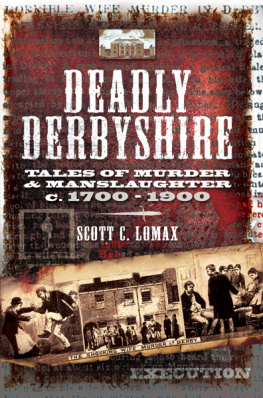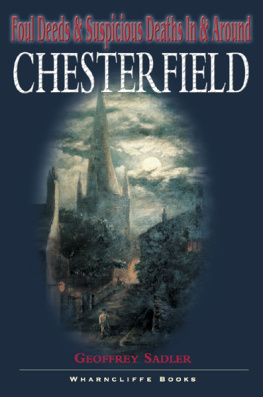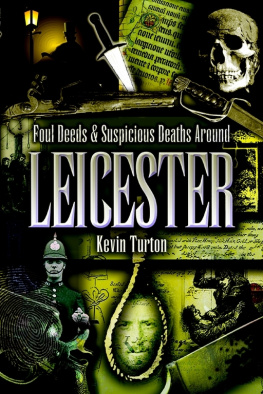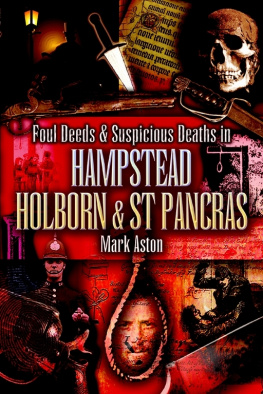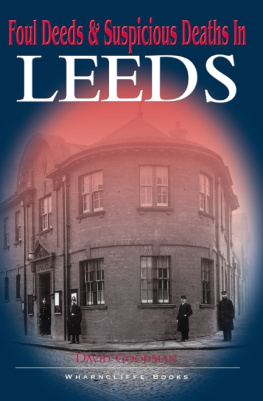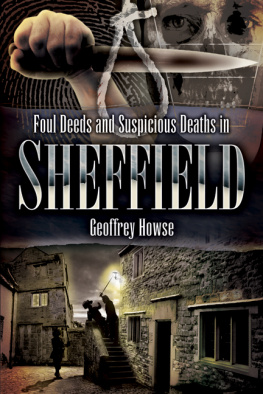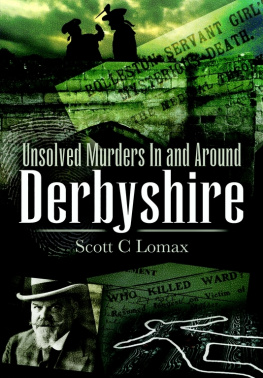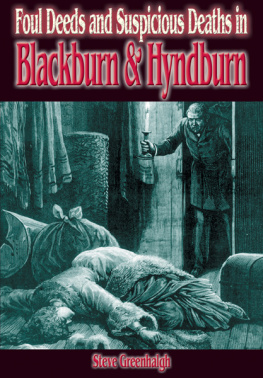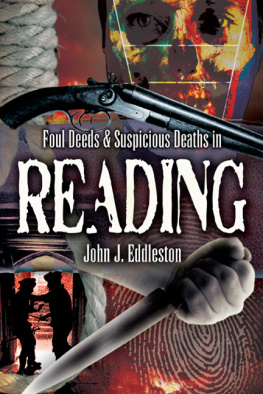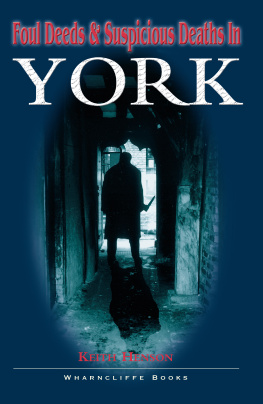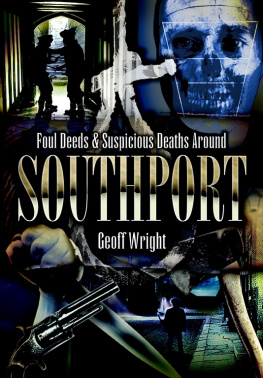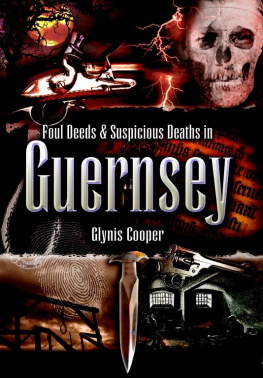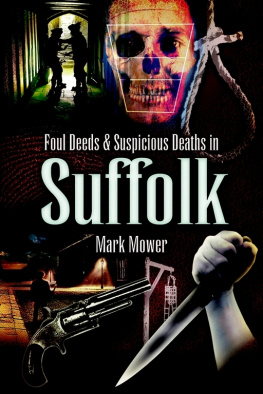
First Published in Great Britain in 2011 by
Wharncliffe Books
an imprint of
Pen and Sword Books Ltd.
47 Church Street
Barnsley
South Yorkshire
S70 2AS
Copyright Scott C Lomax 2011
ISBN: 978-1-84884-621-0
ePub ISBN: 9781844687008
The right of Scott C Lomax to be identified as Author of
this Work has been asserted by him in accordance with the
Copyright, Designs and Patents Act 1988.
A CIP catalogue record for this book is available from the
British Library.
All rights reserved. No part of this book may be
reproduced or transmitted in any form or by any means,
electronic or mechanical including photocopying,
recording or by any information storage and retrieval
system, without permission from the publisher in writing.
Typeset in 11/13pt Plantin by Concept, Huddersfield.
Printed and bound in England by CPI UK.
Pen & Sword Books Ltd incorporates the Imprints of Pen
& Sword Aviation, Pen & Sword Family History, Pen &
Sword Maritime, Pen & Sword Military, Pen & Sword
Discovery, Wharncliffe Local History, Wharncliffe True
Crime, Wharncliffe Transport, Pen & Sword Select, Pen
& Sword Military Classics, Leo Cooper, The Praetorian
Press, Remember When, Seaforth Publishing and
Frontline Publishing.
For a complete list of Pen & Sword titles please contact
PEN & SWORD BOOKS LIMITED
47 Church Street
Barnsley
South Yorkshire
S70 2BR
England
E-mail:
Website: www.pen-and-sword.co.uk
Acknowledgements
I would like to express my thanks to my Uncle, Brian Dickens, who sadly died during the writing of this book but who persuaded me to keep going at a time when I had almost abandoned the project. His words of encouragement and his great interest in crime in Derbyshire, which helped spark my own fascination with historic crimes, was a source of inspiration for this compilation.
I would also like to thank my partner for her patience, support and for accompanying me on some of the visits to various locations across Derbyshire when taking photographs. I am also grateful to the few people I encountered on my rambles who provided me with occasional snippets of local information.
Finally I would like to thank Brian Elliott and everyone at Wharncliffe and Pen and Sword Books for helping bring these old and often forgotten cases back to life.
Introduction
M urder has a fascination that has existed throughout the ages. It is an aspect of humanity which thankfully few of us have ever had to personally deal with but most of us wish to try and understand. There is now, always has been, and probably always will be, a morbid curiosity in gaining a peek into the darker side of human nature. The way in which this curiosity has manifested itself has changed over time. In the times of the cases featured in this book, trials and executions attracted large crowds. Today, whilst visitors flock in and out of courtrooms to see the accused, the media has opened up the experience to people from the comfort of their own homes. Yet the curiosity and interest is no less. If anything it is arguably more.
Murder has been a scourge of society throughout the ages. The past was as dangerous, if not more so, because people lived in a greater age of innocence where even in small communities and villages horrific murders could and did take place - as the following chapters reveal only too well. History allows us to learn from the past. The study of historic crimes, as well as satisfying curiosities and providing dark and chilling entertainment, can help improve knowledge of how and why crime was, and still is, committed.
Deadly Derbyshire is a guide to murder and manslaughter committed within the confines of the county and across the full extent of the county area during the eighteenth and nineteenth centuries. It is based on extensive searches of the newspaper archives, uncovering a large number of cases never before written about in any other published source. This compendium complements and accompanies other books published by Pen and Sword Books, including Foul Deeds and Suspicious Deaths in and Around Chesterfield, More Foul Deeds and Suspicious Deaths in and Around Chesterfield, Unsolved Murders in and Around Derbyshire and Foul Deeds and Suspicious Deaths in and Around Derby, to produce arguably the most comprehensive series of books about Derbyshires deadly past ever to appear in print.
Within these pages there are tales of murder and manslaughter in many of their manifestations, committed for many motivations. There are cases of murder for greed, to abate financial distress, for sex, for jealousy, for revenge, for convenience, and cases where manslaughter was committed due to mental illness at a time when psychiatric problems were barely understood by the medical community let alone the population at large. Furthermore, you will read of cases where violence erupted with fatal consequences due to alcohol, usually involving arguments over trivial matters, but which resulted in bloodshed and the loss of life.
This book contains cases of murders that shocked the entire county, with developments followed by people nationwide. There is, for example, the murder of Elizabeth Goodwin, at Wigwell Hall, near Wirksworth. Goodwins murder was highly prominent in newspapers across the country at the time but has been barely written about since. This lamentable tragedy saw Goodwin, an upper-class niece of a well respected magistrate, killed by her rejected lover; showing that whilst the majority of murder victims were amongst the working people during the Victorian era, murder in general and murders of passion did not discriminate by social class. There is also the case of a police officer who was shot dead in Derby in the line of duty, with a trial so controversial it sparked questions in Parliament, and required the intervention of the Home Secretary.
You will also read of little-published cases, such as instances of murders and suicides, which took place in Chesterfield, Milltown near Ashover, Stoney Houghton near Pleasley and Derby. There is the story of a fatal fight over three eggs which resulted in a killer receiving a prison sentence of just two years, in 1858. Other cases include numerous children, and also some adults, who were dumped in rivers and canals and whose identities were as much a mystery as those who ended the victims lives. Most notable is the singular case of the child who was found in the canal at Derby in 1851, resulting in one of the most controversial criminal cases of the Victorian period for Derbyshire. A fatal duel in the name of honour is recounted, as is the case of a man who murdered his wife and who found himself on the last ship to transport convicts to Australia as a consequence. And then there is the death of Mary Ann Winfield in Derby, who was found drowned. Did she fall from a bridge or was she pushed?
The less well-known cases are of equal, and occasionally arguably greater interest from a criminological point of view. The fact they have never before been written about in book form is not because of a lack of interesting points of the offences but is often because no one was brought to trial due to the suicide of the culprit or because no killer was ever identified. If a trial had commenced it is likely that these little-known crimes would have provoked as much, if not more interest among the people of Derbyshire of the time; and would have interested those of us who study historic criminal cases. Take, for example, the crimes of Elizabeth Berry, a probable serial killer who gained experience in her criminal career in Castleton, where she nearly got away with the murder of her mother. Then there are the unsolved murders of John Mayna and Enoch Stone. Mayna was murdered in Sleet Moor near Alfreton, having been robbed of a waistcoat containing a large sum of money. Stones death caused huge shock across Sponden, resulting in a large cash reward being offered for the capture of his killer. A memorial at the spot at which he was mortally wounded still exists and a street was named in his memory.
Next page
